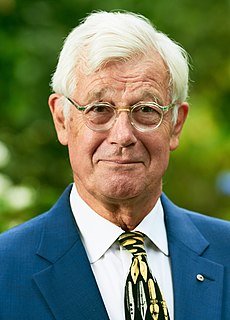A Quote by Umberto Eco
As a scholar I am interested in the philosophy of language, semiotics, call it what you want, and one of the main features of the human language is the possibility of lying.
Related Quotes
One of the reasons I love language is that concerning semiotics, language is an arbitrary sign system, which means the signs within it are free-floating, but we put them in a certain order to get them to have meaning for us. If we left them alone, they'd be like water, like the ocean. It would be just this vast field of free-floating matter or signs, so in this way, I think language and water have much in common. It's only us bringing grammar and syntax and diction and the human need for meaning that orders language, hierarchizes it.
Lying is the misuse of language. We know that. We need to remember that it works the other way round too. Even with the best intentions, language misused, language used stupidly, carelessly, brutally, language used wrongly, breeds lies, half-truths, confusion. In that sense you can say that grammar is morality. And it is in that sense that I say a writer's first duty is to use language well.
Language designers want to design the perfect language. They want to be able to say, 'My language is perfect. It can do everything.' But it's just plain impossible to design a perfect language, because there are two ways to look at a language. One way is by looking at what can be done with that language. The other is by looking at how we feel using that language-how we feel while programming.
We believe we can also show that words do not have exactly the same psychic "weight" depending on whether they belong to the language of reverie or to the language of daylight life-to rested language or language under surveillance-to the language of natural poetry or to the language hammered out by authoritarian prosodies.
The continually progressive change to which the meaning of words is subject, the want of a universal language which renders translation necessary, the errors to which translations are again subject, the mistakes of copyists and printers, together with the possibility of willful alteration, are themselves evidences that human language, whether in speech or print, cannot be the vehicle of the Word of God.
I have stolen more quotes and thoughts and purely elegant little starbursts of writing from the Book of Revelation than anything else in the English language - and it is not because I am a biblical scholar, or because of any religious faith, but because I love the wild power of the language and the purity of the madness that governs it and makes it music.
I think the most important work that is going on has to do with the search for very general and abstract features of what is sometimes called universal grammar: general properties of language that reflect a kind of biological necessity rather than logical necessity; that is, properties of language that are not logically necessary for such a system but which are essential invariant properties of human language and are known without learning. We know these properties but we don't learn them. We simply use our knowledge of these properties as the basis for learning.
Human language has a vocabulary suited to our daily needs and functions: the shape of any human language maps approximately to the needs and activities of our mundane lives. But few would deny that there is another dimension of human existence which transcends the mundane: call it the soul, the spirit: it is that part of the human frame which sees the shimmer of the numinous.







































